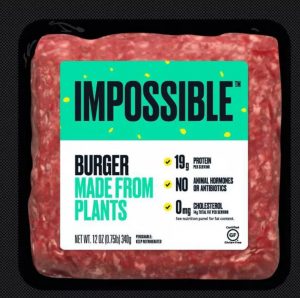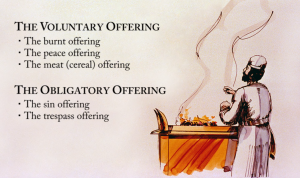Vayikra 2021 – We All Sin!
by devadmin | March 18, 2021 11:58 pm
We all sin!
 Welcome to Sefer and Parshas Vayikro where the first few parshas are dedicated to various korbonis (sacrifices) that were offered, first in the traveling Mishkan, and later in the Batei Mikdashim (Holy Temples). As to us in the year 2021, animal sacrifices are long gone, having been replaced with davening thrice daily and other ways of saying ‘I’m thankful,’ or ‘I’m sorry’ to the RBSO. In our times, saying thank you typically entails sponsoring kiddish in shul, giving charity, and being an overall good guy. Of course, not all who give lots of charity and or sponsor kiddish are good guys. Saying I’m sorry to the RBSO is typically reserved for Rosh Hashono, the days leading up to Yom Kippur and the great Superbowl of ‘I’m sorry,’ on Yom Kippur. Why? That when the RBSO is zicher open for business and paying attention. Of course, He’s ready to accept your apology any day of the year but the bottom line is that people procrastinate, and shoin, Yom Kippur it is.
Welcome to Sefer and Parshas Vayikro where the first few parshas are dedicated to various korbonis (sacrifices) that were offered, first in the traveling Mishkan, and later in the Batei Mikdashim (Holy Temples). As to us in the year 2021, animal sacrifices are long gone, having been replaced with davening thrice daily and other ways of saying ‘I’m thankful,’ or ‘I’m sorry’ to the RBSO. In our times, saying thank you typically entails sponsoring kiddish in shul, giving charity, and being an overall good guy. Of course, not all who give lots of charity and or sponsor kiddish are good guys. Saying I’m sorry to the RBSO is typically reserved for Rosh Hashono, the days leading up to Yom Kippur and the great Superbowl of ‘I’m sorry,’ on Yom Kippur. Why? That when the RBSO is zicher open for business and paying attention. Of course, He’s ready to accept your apology any day of the year but the bottom line is that people procrastinate, and shoin, Yom Kippur it is.
 Also, as Sefer Vayikro comes around yearly, so do the great debates as to whether or not sacrifices -any, some, or none- will make a comeback with the arrival of the Moshiach and the building of the third and final Beis Hamikdash. The debates rage on. The good news: it’s not just we who know kimat nothing, yet continue to argue and discuss. Our sages of yore -including a few very well-respected names- began debating this very issue hundreds of years back. What’s changed since? Not much except for computers, the ability to photograph animals in advance, carefully full-body scanning the Poro Aduma for two black hairs (rendering it not kosher for the intended purpose; remember that black hairs matter), and scheduling issues. If korbonis do come back, some app will be built allowing for better time management and avoiding long lines of tired sinners, those bringing a korban out of guilt (kimat all Jews), others bringing them on their own volition, as well as anxious and unsuspecting animals on their way to their slaughter.
Also, as Sefer Vayikro comes around yearly, so do the great debates as to whether or not sacrifices -any, some, or none- will make a comeback with the arrival of the Moshiach and the building of the third and final Beis Hamikdash. The debates rage on. The good news: it’s not just we who know kimat nothing, yet continue to argue and discuss. Our sages of yore -including a few very well-respected names- began debating this very issue hundreds of years back. What’s changed since? Not much except for computers, the ability to photograph animals in advance, carefully full-body scanning the Poro Aduma for two black hairs (rendering it not kosher for the intended purpose; remember that black hairs matter), and scheduling issues. If korbonis do come back, some app will be built allowing for better time management and avoiding long lines of tired sinners, those bringing a korban out of guilt (kimat all Jews), others bringing them on their own volition, as well as anxious and unsuspecting animals on their way to their slaughter.
 The bottom lines: will they or won’t they return, ver veyst? Will vegans be offering the Impossible Burger or some other brand of meatless yet-meat look-and-taste- alike offerings? Ver veyst? Will meat, which may have originally emanated from a live animal, but will very soon be produced in a test tube or 3D printer, be kosher for korban use? Will vegans eat and or sacrifice such make-believe printed meat? Ver veyst? Shoin, so many questions and no answers! Let’s go veyter.
The bottom lines: will they or won’t they return, ver veyst? Will vegans be offering the Impossible Burger or some other brand of meatless yet-meat look-and-taste- alike offerings? Ver veyst? Will meat, which may have originally emanated from a live animal, but will very soon be produced in a test tube or 3D printer, be kosher for korban use? Will vegans eat and or sacrifice such make-believe printed meat? Ver veyst? Shoin, so many questions and no answers! Let’s go veyter.
One point the heylige Ois raises quite often is this: though we were zicher taught that are no repeated words in the heylige Toirah, one would be hard-pressed to dispute that Parshas Vayakhale and Pikudai (which we read just last week), are not kimat 100% mirror images of one another. And so are Teruma and Tetzaveh. As we begin Sefer Vayikro, be aware that Parshas Vayikro and Parshas Tzav (next week’s parsha) too are kimat mirror images of one another. What’s pshat? And how can our rabbis -with a degree of certitude -noch der tzi- (with emphasis) tell us and with straight faces, that there are no extra words? Ver veyst? The bottom line: if the RBSO decided to repeat words, certain concepts, and parshas which are over 90% matched up to one another, who are we to question Him? Mistama He had a good reason. What that reason is, ver veyst? Grada, it’s because we did question Him, and did not listen to Him and His edicts, that Yiddin were given the opportunity to bring sacrifices to begin with. The bottom line: if you’re late for shul, don’t feel like going, not to worry; you’ll catch the replay next week in Tzav. Got all that? Great, and for now, let’s go veyter.
Ober before we do, let’s share some feel-good news: just a few years back, the heylige was among the few who embraced michiras chometz online. Instead of waiting on line to see the rabbi and then lifting his handkerchief to make a kinyan, he but lifted his keyboard and shoin the chometz was sold to the unsuspecting goy. We have previously written about this somewhat questionable (efsher sham) transaction, and those who want to know more about this slight-of-hand mauver, should check out the archives at www.oisvorfer.com. The bottom line: sham or not, it’s become an accepted tradition and we roll with it. In corona times, and though it dramatically cuts down their business opportunities, it appears that most rabbis of most shuls have adapted to the sale of chometz online and once again demonstrating the value of the heylige Internet.
 And the best news of the week? Once again the heylige Ois was blessed with not one, but two bidikas chometz kits in his mailbox, each containing a holtzene leflel (wooden spoon) and other goodies needed to do a full and kosher bidika (inspection). And when it comes to wood, some extra can’t hurt, if you chap. Veyter.
And the best news of the week? Once again the heylige Ois was blessed with not one, but two bidikas chometz kits in his mailbox, each containing a holtzene leflel (wooden spoon) and other goodies needed to do a full and kosher bidika (inspection). And when it comes to wood, some extra can’t hurt, if you chap. Veyter.
The good news keeps coming: As Vayikra and the many dozens of commandments associated with sacrifices come around, we are reminded that they make up a good percentage of the 248 mitzvis ah-says (positive commandments). And when we recall that there were 248 positive commandments to begin with and when deducting all those that are temple related and those to be performed only when living in Israel, we get down to a more manageable number of 126. What’s the good news? Fewer to violate! And the bad news: when we do violate the remining positive commandments, on a percentage basis we look worse than before. And that Raboyseyee could anger the RBSO. Imagine Him asking us why we couldn’t properly observe but 100+ commandments? Yikes! Ober not to worry: He gets much angrier when we violate one of the 365 negative commandments. Ober says the Shelah (author of the Shnie Luchiois Habris and also of the prayer for Parnoso some recite religiously every month or so, that the number of ‘thou shalt not do’s has also been reduced to 243. In other words, the holy 613 have been reduced to 369. How is that possible when the heylige Toirah is forever alive? Vey veyst? Shoin, maybe we could argue as would the heylige Gemora, azoy: it’s not an issue. Avada the heylige Toirah is alive and forever. Ober, it so happens that a (good) number of mitzvis are efsher out of style, or season, for now; they’re on extended leave. They are napping waiting for the Moshiach. They have not -as have many people things, and places of late- been cancelled. Shoin, let’s talk korbonis, but why? Who cares?
Parshas Vayikro deals extensively with the korbonis, the vastly important and widely misunderstood animal and flour offerings brought in the Beis Hamikdash, the Holy Temple. Our sages teach us that the world rests on three pillars: the study and fulfillment of the heylige Toirah, the Temple service, and the performance of kindness to one’s fellow man. Avada we all know that the root of the Hebrew word for offering, ‘korban’, means drawing close. How could taking the life of an animal bring one closer to the RBSO? Ver veyst? Ober it’s not a question most ask when chomping down on a good shtikel steak. The BBQ fleishfest overrides. Moreover, it appears that animal sacrifices have been around forever; who are we to ask questions? If the RBSO gave specific instructions to sacrifice specific animals and birds for different sins and for voluntary sacrifices, and if we’re married to Him and that’s what He wants, so be it. Shoin.
 Next: as mentioned above, since the Temple’s destruction, the Temple offerings were replaced by our daily prayers – the service of the heart. Shoin, given the significance of korbonis described in the parsha, efsher we can also ask why most of them are completely voluntary in nature? If these mitzvos are so valuable, why wasn’t their performance obligatory? Nu, avada there are answers to these questions, ober let’s go veyter.
Next: as mentioned above, since the Temple’s destruction, the Temple offerings were replaced by our daily prayers – the service of the heart. Shoin, given the significance of korbonis described in the parsha, efsher we can also ask why most of them are completely voluntary in nature? If these mitzvos are so valuable, why wasn’t their performance obligatory? Nu, avada there are answers to these questions, ober let’s go veyter.
Is it my imagination or does it epes appear that many of the korbonis had some sexual overtones? Back a few years, we looked at this the amazing Mishne (Ovois 5:5) which says azoy: “Ten miracles were performed for our forefathers in the Holy Temple: No woman ever miscarried because of the smell of the holy meat. The holy meat never spoiled. Never was a fly seen in the slaughterhouse. Never did the koihen godol (High Priest) have an accidental seminal discharge on Yom Kippur. The rains did not extinguish the wood-fire burning upon the altar. The wind did not prevail over the column of smoke [rising from the altar]. No disqualifying problem was ever discovered in the Oimer offering, the Two Loaves or the Showbread. They stood crowded but had ample space in which to prostate themselves. Never did a snake or scorpion cause injury in Yerusholayim. And no man ever said to his fellow “My lodging in Yerusholayim is too cramped for me.”

That’s quite a list and it should come as no surprise that we yearn for its rebuilding. Ober did you read that fourth miracle? It took a miracle for the koihen not to have an accidental seminal emission while in the holy temple and performing the avoido? What the hec was he doing in there with those animals or other koihanim? Moreover, if the Mishna goes out of its way to tell us that koihen never experienced a seminal discharge on Yom Kippur, are we to epes conclude that efsher maybe the Koihanim did suffer from seminal emissions on other days of the year? Ver veyst and what’s pshat in this Mishna? Nu, something’s up, or was, if you chap, if the mishna goes out of its way to mention that this was taka a miracle. What could have induced such emissions, ver veyst?
We also reviewed this posik (VaYikro 6:3) “And the Kohain shall put on his linen vestments and the linen pants he shall wear over flesh. And he shall lift the ashes of the burnt offering, consumed by the fire, that are on the altar. And he shall place them by the altar.” Says Rebbe Shimon: that the Kohain must wear all four of the priestly garments for ‘trumas hadeshen’ (removal of the garbage), and the Toirah emphasizes the tunic and pants. Why? Because the tunic atones for murder, and the pants atone for illicit relations. Why a koihen who had illicit relations was in charge, ver veyst but who are we to judge? Maybe the others were worse? On the other hand, now we can chap the Mishna we learned just above. Efsher a miracle was taka required so that the Kohain didn’t have an emission during the Avoida, ver veyst. More on the sinning koihen godol below, but first…
How can we shrink down discussions of the myriad korbonis into a few pages and paragraphs? This year, in year 11 of heylige Ois postings, let’s take a look at but one. Let us briefly examine the korban Chatos (sin offering). The Ois imagines that people sinned daily (at least once, if you chap), and the korban chatos altar must have had the longest line with very busy kohanim assisting the sinners. We also imagine the kohanim making tip money by moving people up the line. Ober, who was obligated to bring the korban chatos? Says the heylige Toirah (Vayikro Chapter 4:2), azoy:
| Speak to the children of Israel, saying: If a person sins unintentionally [by committing one] of all the commandments of the Lord, which may not be committed, and he commits [part] of one of them | בדַּבֵּ֞ר אֶל־בְּנֵ֣י יִשְׂרָאֵל֘ לֵאמֹר֒ נֶ֗פֶשׁ כִּי־תֶֽחֱטָ֤א בִשְׁגָגָה֙ מִכֹּל֙ מִצְוֹ֣ת יְהֹוָ֔ה אֲשֶׁ֖ר לֹ֣א תֵֽעָשֶׂ֑ינָה וְעָשָׂ֕ה מֵֽאַחַ֖ת מֵהֵֽנָּה: |
The bottom line: there are three elements which define the sin requiring a sin offering:
- The sin is performed unintentionally. A person who sins knowingly cannot achieve atonement through a sin offering, and he is not permitted to bring one. Sadly, this exclusion would disqualify most of us who commit sins knowingly. Shoin! Thank the RBSO that Yom Kippur is not too far in the future.
- The sin involves an act. A sin that does not involve an action does not require a sin offering. Getting action where forbidden but performed efsher unwittingly (b’shoigeg), might get you a chatas-get-out-of-gihenim free. By example, if you were sleepwalking and accidentally walked into the wrong hotel room and did a forbidden act, you might efsher claim that the chatas was warranted and that you’re now absolved.
iii. The sin is committed against “any of the RBSO’s mitzvis, things that should not be done” – i.e., the person has transgressed a negative command. A sin offering is not brought for failing to fulfill a positive command.
Says Rashi (4:2) that the sin offering is not brought for all prohibitions, but only for the most serious: “Our Sages taught: A sin offering is brought only for a matter whose punishment, if committed intentionally, would be ‘korase.'” What is korase? It’s bad! It’s excision, a punishment that is applied by the RBSO. Sins that involve only punishment at the hands of the court, with no korase, are apparently an offense principally against society, and therefore the obligation of atonement through a sin offering does not apply to a person who commits them unintentionally. Got all that? Confused! Veyter? The bottom line: the sin offering atoned for sins committed out of negligence or carelessness. Let’s get back to the korban chatas an re-read the instructions. The RBSO spoke to Moishe saying, speak to the children of Israel saying, when a person will sin unintentionally from among all the commandments of Hashem that may not be done, and he commits one of them, he shall bring the sin offering. With these words, the heylige Toirah is introducing the standard sin offering, brought by any individual who accidentally commits a severe transgression. Given the great number of people who committed sins daily, avada this korban was of interest, and one would have imagined the heylige Toirah would be teaching us what specific sins the violator would have committed in order to be eligible (obligated) to bring the chatos offering. Ober, instead of providing examples of such sins, the heylige Toirah pivots and first delineates the laws of three niche sin offerings, none of which involved the general public. The heylige Toirah goes on to specify sins committed by the Koihen Hamoshiach and or the king before -many pisukim later- getting back to the masses and under what conditions they are required to bring the sin offering. Let’s read pisukim 3 and 22.
| 3. If the anointed kohen sins, bringing guilt to the people, then he shall bring for his sin which he has committed, an unblemished young bull as a sin offering to the Lord. | גאִ֣ם הַכֹּהֵ֧ן הַמָּשִׁ֛יחַ יֶֽחֱטָ֖א לְאַשְׁמַ֣ת הָעָ֑ם וְהִקְרִ֡יב עַ֣ל חַטָּאתוֹ֩ אֲשֶׁ֨ר חָטָ֜א פַּ֣ר בֶּן־בָּקָ֥ר תָּמִ֛ים לַֽיהֹוָ֖ה לְחַטָּֽאת: |
| 22. If a leader [of Israel] sins and unintentionally commits one of all the commandments of the Lord, which may not be committed, incurring guilt; | כבאֲשֶׁ֥ר נָשִׂ֖יא יֶֽחֱטָ֑א וְעָשָׂ֡ה אַחַ֣ת מִכָּל־מִצְוֹת֩ יְהֹוָ֨ה אֱלֹהָ֜יו אֲשֶׁ֧ר לֹא־תֵֽעָשֶׂ֛ינָה בִּשְׁגָגָ֖ה וְאָשֵֽׁם: |
The heylige Toirah provides details of the chatos offering for the koihen godol, the sin offering brought on behalf of the entire nation when it would act based on a mistaken ruling from the Great Sanhedrin (the Jewish supreme court), and the sin offering for a king. And we ask azoy: Did the RBSO already know that at least one of our future kings might be a sinner? In fact, if we examine the instructions carefully, it would appear just so. Was the RBSO signaling that people in power do sin, albeit at times, inadvertently? Says the Oznayim LaToirah, so gishmak, azoy: it’s emes! Once a person has become a ruler, he is in danger of sinning. Leadership comes with power and power corrupts. Shoin!
Let’s go back and revisit the shrekliche story of Dovid Hamelech. When Noson Hanovee (Nathan the Prophet) spoke critically of Dovid’s rather bizarre behavior and dealings with Uriah and Batsheva, (let’s recall how Dovid set his eyes on Batsheva, wanted her, got her, and sent Uriah to his death), the Navi relates how Dovid finally realized the gravity of his sin and answered Noson azoy: “ויאמר דוד אל נתן חטאתי לה’, And Dovid said to Noson, I have sinned to G-d (Shmuel II 12:13).” Succinct and sincere: the good king didn’t mince his words. He understood that he was responsible for his actions, and he knew that as a leader he must model what it means to truly say sorry.
Says the heylige Zoihar (also taught by Rebbe Yoichanan ben Zakai), azoy: “אשרי הדור שנשיא שלו מביא חטאת על שגגתו, Fortunate is the generation whose leader brings a sin offering for his mistakes (Toisefta Bava Kamma 7:2).” How blessed are the Jewish people to have had leaders like King David, who were righteous, pious, and not afraid to utter the words, “I have sinned!” Gishmak!
Moreover, the heylige Toirah does not state ‘if’ the king will commit a sin but instead states ‘when’ the king will sin. In fact, three out of the four sin offerings listed are introduced by the word “ואם, (and if). For it is not guaranteed that any one person will sin and need to bring a korban, but “if” the need arises, this is how it’s done. Ober, when introducing the sin offering of a king, the heylige Toirah writes, “אשר נשיא יחטא, (when a ruler sins (Vayikra 4:22)).” For a king, a political leader, who bears so much responsibility for his subjects, and who is constantly worried about maintaining support and power, it is almost guaranteed that he will stumble or sin.
The final bottom lines of sins and sin offerings: Ershtens (firstly), everyone – to include leaders, rabbis, and even kings- makes mistakes and bad decisions on occasion, both towards the RBSO and to fellow man (and lady). True greatness is not feigning infallibility, but recognizing, and admitting, that we all make mistakes. The RBSO gave us the heylige Toirah with the understanding that we are not angels, and that we have temptations and desires. He chaps that we chap, if you chap. He knows and expects that we will sometimes falter or sin. He expects nothing less from us; mostly, we do not disappoint. In times past, there were korbonis that could atone for some of those sins. Until the Moshiach arrives and we have a new Beis Hamikdash, all we can do is own up and like King David, admit that we were wrong. In the words of Koheles, “There is not even a righteous person in the world who fails to sin.”
Source URL: https://oisvorfer.com/vayikra-2021-we-all-sin/